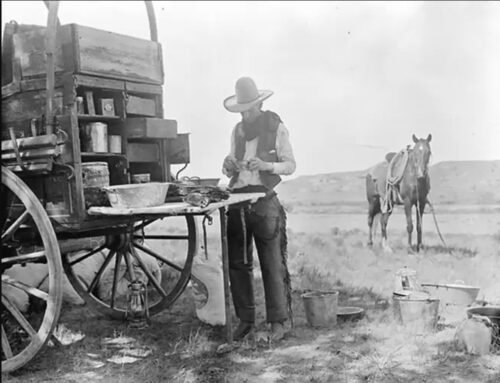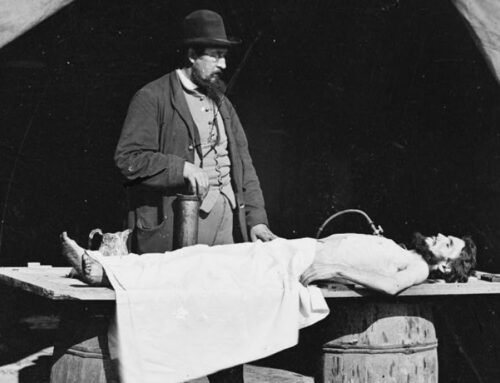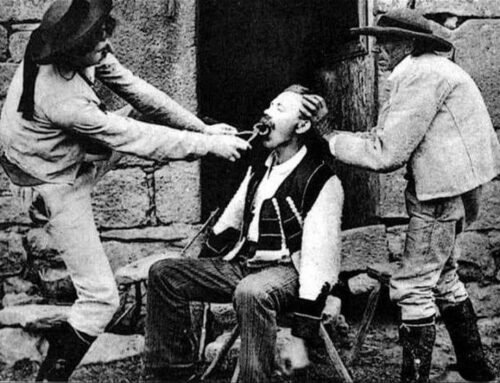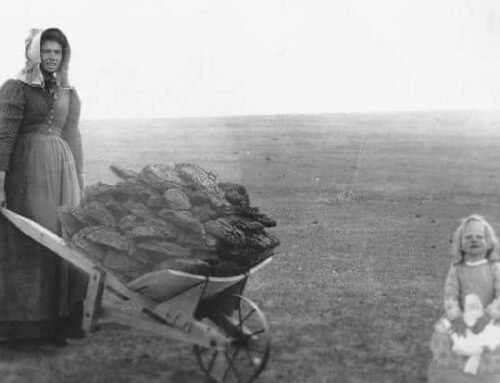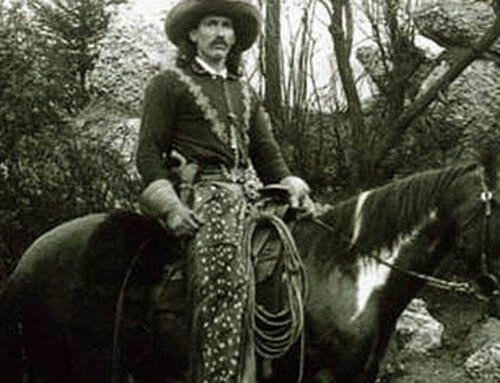Marshals, Sheriffs and Old West lawmen
By western author Nick Brumby
 “What in heck you three boys think you’re doin’? Hold it there and keep them hands away from them holsters. I’ve got a nose for trouble, and you three stink to high hell.”
“What in heck you three boys think you’re doin’? Hold it there and keep them hands away from them holsters. I’ve got a nose for trouble, and you three stink to high hell.”
The Old West had a reputation for being a lawless place and time. With all the gun-toting, cattle rustling, train- and stagecoach-robbing, and card-hustling going on, at times it must have seemed like there were no laws and no one upholding the peace.
However, this was not the case. Old West society had various types of lawmen with different levels of authority.
U.S. Marshals were appointed by the Attorney General; a Sheriff was elected to office by the county residents, a Marshal appointed by the City Council. Deputies, constables, rangers, and peace officers were hired by superior officers or the local authority.
US Marshals were charged with maintaining federal law, and they could deputize local men to form a posse when greater numbers were necessary. During this period, deaths in the line of duty were common.
Town sheriffs had to collect taxes, campaign for election, watch over the

inmates in the town jail, and sometimes even shovel horse manure out of the streets. It was not the glamorous career that Hollywood westerns make it out to be.
Many lawmen received no pay other than a percentage of any money that those they arrested might be fined, or the collection of bounties on the heads of wanted men. This often led them to have second jobs or sometimes, to use their badges in establishing protection rackets or other crimes.
Of those who did make a salary, it was often very low, and their duties often included tasks that many felt were beneath them, such as keeping the streets clean, and other city duties; or in the case of U.S. Marshals — being responsible for taking the national census and distributing Presidential proclamations.
Often their work would consist of weeks of boring tasks, punctuated by moments of high drama and sometimes deadly confrontation.
The Wild West also saw the rise of the Pinkerton detectives, a private agency commonly hired as bounty hunters for the most troublesome offenders. Despite the detectives’ reputation, the outlaw Jesse James continued to elude them. In their pursuit of James, the Pinkertons lost the  good will of the public when it became clear they would use whatever means necessary to get their man.
good will of the public when it became clear they would use whatever means necessary to get their man.
It was thanks to lawmen like these and thousands of others who commanded respect and weren’t afraid to stand up to outlaws.
These men made a difference and helped tame the wild west, one shot at a time. As Wyatt Earp put it, “Fast is fine, but accuracy is final.”
For these reasons and more, very few of even the most famous lawmen actually spent very many years wearing a badge, including Wild Bill Hickok, who only

served a few short years in various roles, and Wyatt Earp, who worked in a few Kansas cowtowns, before being temporarily deputized by his brother Virgil in time for the O.K. Corral gunfight.
Main image: “The Smell Of Trouble”, by artist Clark Kelley Price
https://clarkkelleyprice.com/

About Nick Brumby
I like a good story. And of all stories, I love westerns the most.
As a kid, I spent far too many afternoons re-watching Clint Eastwood spaghetti westerns, picking up ‘Shane’ for just one more read, or saddling up beside Ben Cartwright when ‘Bonanza’ was on TV each afternoon.
I’m a former journalist and I love horses, dogs, and the occasional bourbon whiskey. I live with my wife, daughter and our ever-slumbering hound in a 1800’s-era gold mining town – our house is right on top of the last working gold mine in the area. There may not be much gold left, but there’s history wherever you look.
I hope you enjoy my westerns as much as I enjoyed writing them!
Happy trails,
Nick























